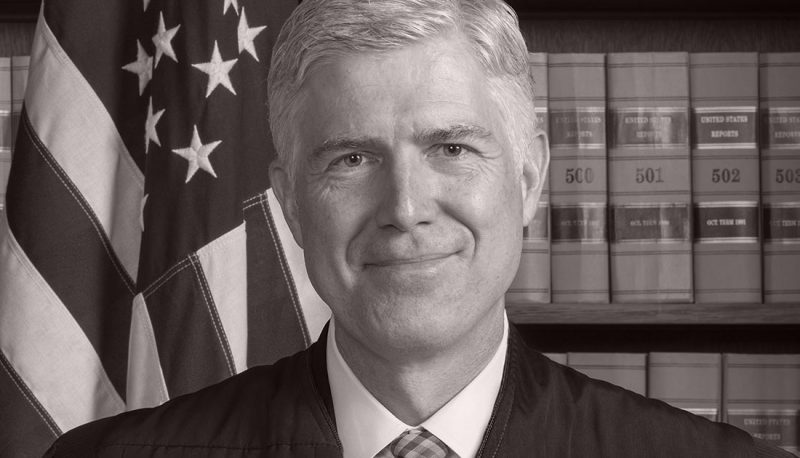“Confirmed Judges, Confirmed Fears” is a blog series documenting the harmful impact of President Trump’s judges on Americans’ rights and liberties. Cases in the series can be found by issue and by judge at this link.
In the March 2021 case of Torres v. Madrid, Justice Gorsuch tried to open a new avenue for law enforcement to escape liability when they wrongfully shoot someone. Gorsuch wrote a dissent arguing that a police shooting is not a “seizure” covered by the Fourth Amendment’s protections if the victim is not killed or subdued as a result. However, the Supreme Court disagreed with his dissent in a 5-3 decision authored by Chief Justice Roberts and joined by Justices Kavanaugh, Breyer, Sotomayor, and Kagan. (Justice Barrett did not participate in the case because it was argued before she joined the Court.)
Roxanne Torres alleged that she was sitting in her car when two individuals with guns approached and tried to open her door. Thinking she was being carjacked, she started to drive away. Unknown to her, the individuals were actually police officers, and they shot at her while she was trying to get away. She was hit twice, but continued to drive, and she eventually got away. She filed a civil rights complaint against the officers for using unconstitutionally excessive force against her, saying they committed an unconstitutional seizure under the Fourth Amendment.
The lower courts dismissed her case because they were bound by a 2010 Tenth Circuit precedent that had been joined by then-Judge Gorsuch. Under that case, if someone wrongfully shot by police continues to flee, they have not been “seized” and they therefore cannot pursue an excessive-force claim under the Fourth Amendment.
A decade later, that was the position of the officers who shot Torres, as well as now-Justice Gorsuch. In a dissent joined by Justices Thomas and Alito, he argued that there was no “seizure” to be considered unconstitutional because Torres got away after being shot.
But the Supreme Court rejected that cramped reading of our Fourth Amendment protections in an opinion authored by the Chief Justice. The majority opinion opened with a reminder that the Bill of Rights prohibits unreasonable “seizures” in order to safeguard “the right of the people to be secure in their persons.” As the majority explained, the “seizure” of a person has always been understood to mean any use of force intended to restrain movement, regardless of whether it is successful. As an example, Roberts wrote that “the ordinary user of the English language” could say that someone “seized the purse-snatcher, but he broke out of her grasp.”
The majority and dissent argued over American and English precedents dating back centuries. Gorsuch found it relevant that the ancient cases involved officials who actually touched the individuals they were trying to subdue, while the case before the Court involved gunfire rather than physical touch. The majority found no basis for drawing “an artificial line between grasping with a hand and other means of applying physical force to effect an arrest.” Roberts wrote that Gorsuch’s focus on physical touching “calls to mind the unavailing defense of the person who ‘persistently denied that he had laid hands upon a priest, for he had only cudgelled and kicked him.’”
Commentators have rightly described this case as closing a “police shooting loophole.” But this “nonsensical exemption from the Fourth Amendment” was not part of the Constitution. Instead, it was a creation of far-right judges like Neil Gorsuch. Under their interpretation, whether an unjustified police shooting is unconstitutionally excessive depends on what happens after the gun is fired, based on what the victim does.
It is disturbing that Gorsuch found two justices in agreement once he reached the Supreme Court. It shows the importance of nominating qualified judges to the Supreme Court, ones with a demonstrated commitment to civil rights. A healthier Supreme Court would have rejected the Gorsuch approach unanimously.
Importantly, this still does not guarantee that Torres will have her day in court. She still faces the hurdle of overcoming the police officers’ argument that they have qualified immunity from being sued.

